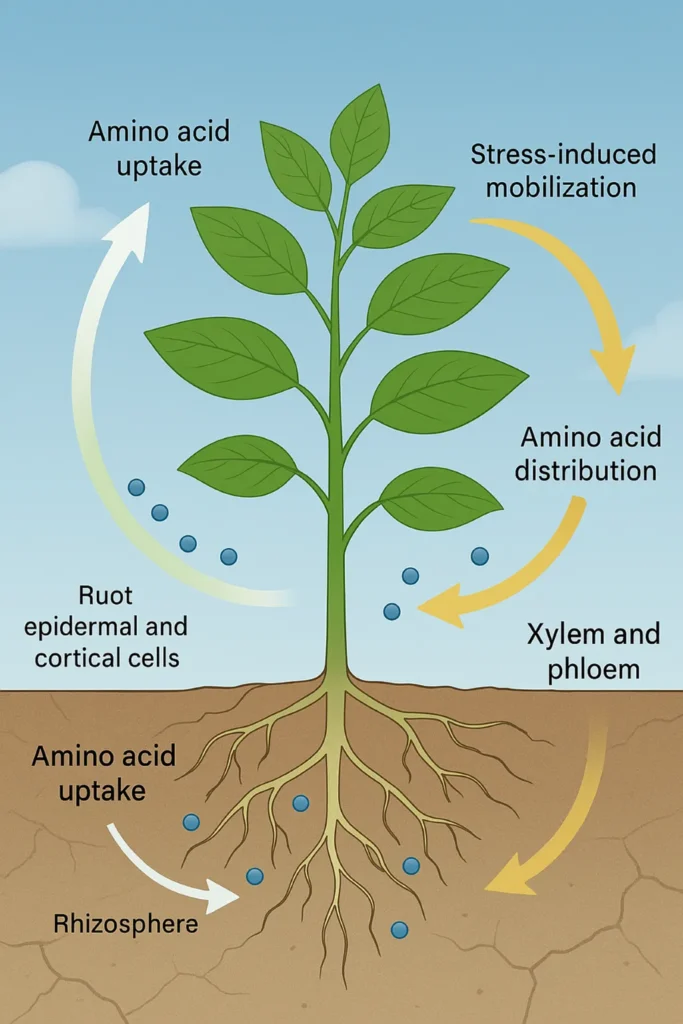In the ever-evolving landscape of agricultural biotechnology, a recent review published in *Discover Plants* has shed new light on the multifaceted roles of amino acids in plant growth, development, and stress responses. Led by Ali Heidarzadeh from the Department of Agronomy at Tarbiat Modares University, the research delves into the intricate ways amino acids influence physiological and biochemical processes in plants, offering promising avenues for crop improvement.
Amino acids, long recognized as the building blocks of proteins, are now understood to play far more complex roles in plant physiology. They act as signaling molecules, metabolic regulators, and precursors to essential phytohormones and secondary metabolites. This comprehensive review synthesizes current knowledge to highlight how individual amino acids impact various aspects of plant life, from nutrient assimilation to stress perception and defense mechanisms.
One of the most compelling findings is the interaction between amino acids and stress-responsive signaling pathways. “The complex interplay between amino acid metabolism and stress-responsive signaling remains poorly understood,” Heidarzadeh notes. “Understanding these interactions could unlock new strategies for enhancing crop resilience under changing climate conditions.”
The review explores molecular pathways such as the shikimate and aspartate family pathways, and how amino acids interact with hormones like jasmonic acid, salicylic acid, and indole-3-acetic acid under biotic and abiotic stresses. These insights are crucial for developing crops that can withstand environmental challenges, from drought and salinity to pest infestations.
From a commercial perspective, the implications are significant. As climate change continues to pose threats to global agriculture, the need for resilient crops has never been greater. By harnessing the potential of amino acid pathways, researchers and agritech companies can develop innovative solutions to improve crop yields and sustainability. This could translate into economic benefits for farmers and food security for consumers worldwide.
Heidarzadeh’s review also highlights recent advances in the genetic and transcriptomic regulation of amino acid-mediated stress tolerance. These findings could pave the way for targeted genetic modifications that enhance crop resilience without compromising other desirable traits.
As the agricultural sector grapples with the challenges of a changing climate, this research offers a beacon of hope. By integrating molecular-level insights with practical applications, it provides a fresh perspective for agricultural biotechnology and plant stress physiology. The future of crop improvement lies in understanding and leveraging these complex biological interactions, and this review is a significant step in that direction.
For the agriculture sector, the potential commercial impacts are vast. Enhanced crop resilience could lead to more stable yields, reduced losses due to environmental stresses, and ultimately, a more secure food supply. As researchers continue to unravel the mysteries of amino acid metabolism and stress responses, the possibilities for innovation in agritech are endless.

